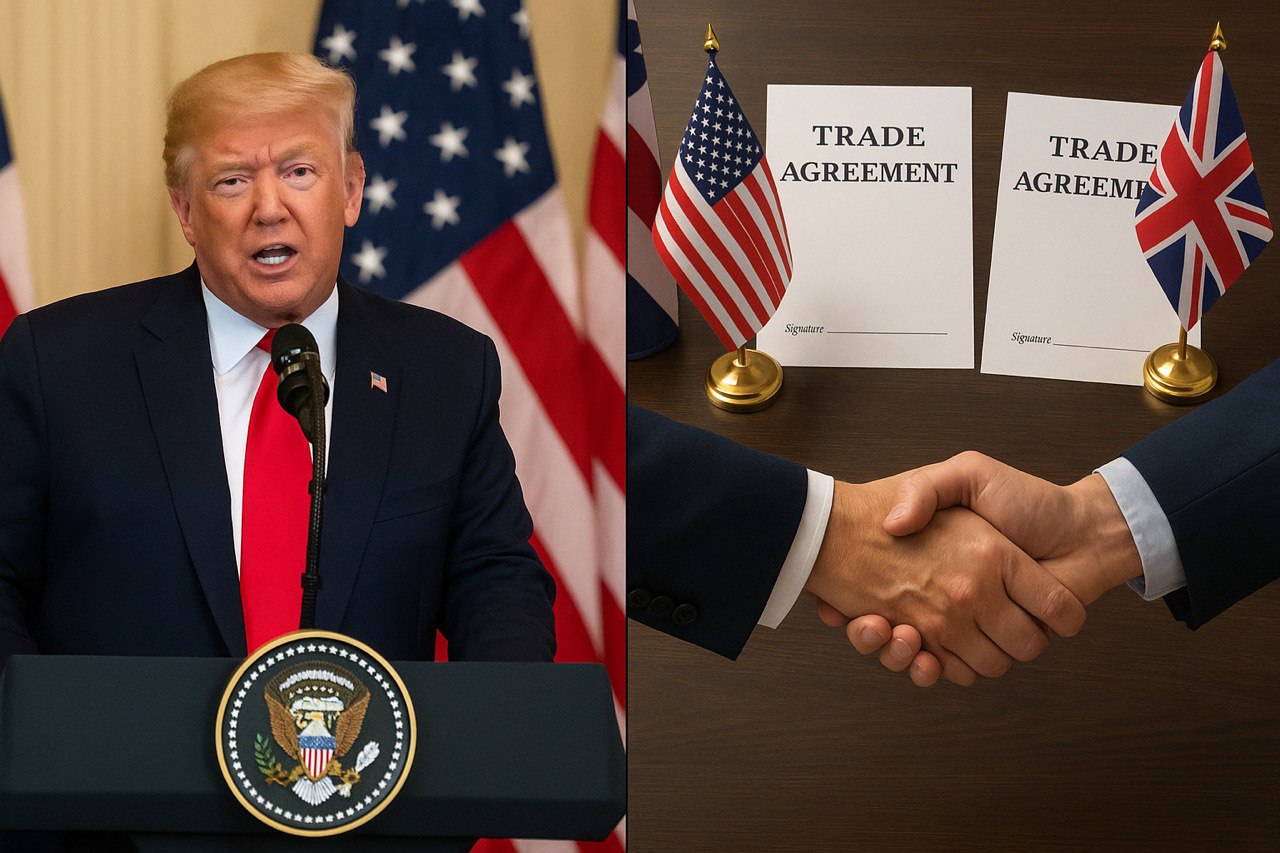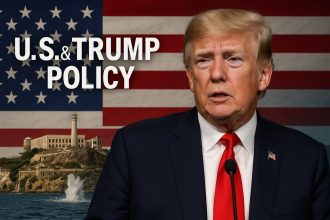In a highly anticipated move, President Donald Trump is poised to announce a “full and comprehensive” trade deal with the United Kingdom today at 10:00 AM Eastern Time (4:00 PM CEST), as reported by various news outlets like POLITICO and NPR. This announcement comes at a critical juncture, with global markets still reeling from Trump’s recent tariff impositions, which include a 10% tariff on all imported goods starting April 2, 2025, and higher tariffs on specific sectors like automobiles. I’ve seen my fair share of economic announcements, but this one feels different. There’s a palpable sense of anticipation, not just among policymakers, but among everyday people feeling the pinch of higher prices due to these tariffs.
The current time, May 08, 2025, places us just before the press conference, heightening the suspense. This deal is framed as the first of many, suggesting a broader strategy to renegotiate trade relationships, as mentioned in Trump’s X post. Given the context, it’s crucial to explore what this means for US-UK relations, global trade dynamics, and the average consumer.
Historical and Economic Context
The road to this deal has been long, especially since the UK’s exit from the EU. Post-Brexit, the UK has been keen to secure trade agreements to redefine its global trade position, with the US being a key partner due to their deep economic ties. The US is the UK’s largest trading partner, with billions of pounds in annual trade, covering goods like financial services and technology. However, recent US tariffs, including a 25% tariff on UK cars, have added urgency, impacting industries and raising costs for consumers.
Trump’s tariff strategy, starting April 2, 2025, included a 10% baseline tariff and higher sectoral tariffs, with the UK not facing the largest hikes but still affected, particularly in autos and steel. This has created a backdrop where a trade deal could offer relief, potentially reducing these tariffs and boosting UK exports.
Details of the Anticipated Deal
As of now, the specifics remain under wraps, but Trump’s description as “full and comprehensive” suggests a broad scope, possibly covering goods, services, and digital trade. Given the tariff context, it seems likely the deal includes exemptions or reductions for UK exports, especially in cars, steel, and aluminum, where the UK has been hit hard. This could align with past negotiations, which mentions ongoing talks with allies.
The deal is also framed as the first of many, indicating a potential shift in US trade policy, possibly encouraging other countries like Japan and South Korea to negotiate. However, without the details, it’s hard to predict exact terms, but it’s reasonable to expect provisions addressing modern trade issues like data privacy and intellectual property, given the economic interdependence.
Broader Implications and Global Impact
This deal is more than bilateral; it’s a signal to the world. By prioritizing the UK, Trump may be showing willingness to work with allies, potentially mitigating tariff fallout, but it raises questions about fairness to other trading partners. For instance, will countries like China, facing 145% tariffs, feel sidelined? This could lead to tensions, especially with the UK’s simultaneous negotiations with the EU, where a “free and open trade” declaration is being drafted.
Economically, the deal could lower prices for consumers on imported goods, but there might be disruptions in sectors facing increased competition, as warned by economists in ABC News. For businesses, it could mean new opportunities, but also challenges if regulatory standards differ.
Consumer Impact and Practical Advice
For everyday people, trade deals like this can mean lower prices on goods like electronics and food, but also potential disruptions, as I’ve seen in my reporting. For example, if tariffs on coffee beans rise, your morning café visit might cost more, or a new car purchase could see a price hike due to auto tariffs. Staying informed is key, and resources like trading platforms can help navigate volatility, as I’ll mention later.
To stay ahead, consider following economic news, understanding tariff impacts on your purchases, and exploring investment options. This deal could create opportunities, but also challenges, so being proactive is essential.
On a related note, as global trade dynamics shift, many are turning to alternative investment opportunities. One platform gaining attention is PocketOption, known for its user-friendly interface and diverse trading options, including forex and commodities. A colleague recently mentioned how useful it has been for staying ahead of economic shifts, especially with recent tariff volatility.
As we approach the press conference, the anticipation is high. This deal could mark a new chapter in US-UK relations, potentially setting a precedent for global trade. Whether it lives up to the hype or faces challenges remains to be seen, but one thing is clear: the world is watching. Will this be the game-changer Trump promises, or just another headline? Only time will tell, but for now, it’s a moment of potential economic realignment.




